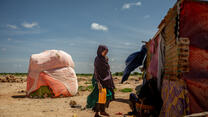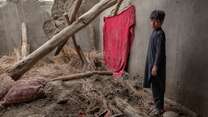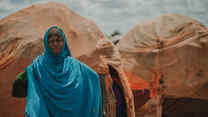As world leaders gather in Azerbaijan for COP29, the UN-led annual climate negotiations, critical decisions will be made about the future direction of global climate action, including what to prioritize, how to fund it and how to deliver it. It would be a failure to reinforce the existing imbalances between stable and fragile communities that intensify injustices and leave climate-vulnerable, conflict-affected communities unsupported in the face of compounding crises.
The most extreme impacts of the climate crisis are becoming increasingly concentrated in a handful of conflict-affected countries. Seventeen countries sit at the epicenter of this convergence of climate vulnerability and ongoing conflict. These countries — ranging from Syria to Somalia — are home to only 10.5% of the global population and are responsible for just 3.5% of annual greenhouse gas emissions, yet they represent:
- 35% of all people living in extreme poverty
- 33% of all people affected by natural disasters over the past three years
- 71% of all people in humanitarian need
COP29 can be a success if it builds on the Climate Relief, Recovery & Peace Declaration from COP28 and defines decision rules in the New Collective Quantified Goal (NCQG), driving climate finance to where it is needed and turning words into action. In this report, the IRC recommends that climate leaders at COP29 should:
- Invest more in resilience, adaptation and anticipatory action to prevent the worst impacts of the climate crisis in conflict-affected settings
- Mobilize and better target climate financing to underserved communities, including by ensuring climate finance works more effectively alongside development and humanitarian aid streams
- Build and operationalize a more flexible partnership model using a people-first approach that diversifies delivery partners and meets communities where they are.
The financing negotiations at COP29 present a pivotal moment to move beyond the business-as-usual approach to climate action and ensure the most affected communities have the resources and support they need to respond to this crisis. The outcome of the negotiations in Azerbaijan will echo throughout the rest of the decade, with the most vulnerable communities bearing the weight of the decisions. Now is the time to translate commitments into tangible, lifesaving action.



